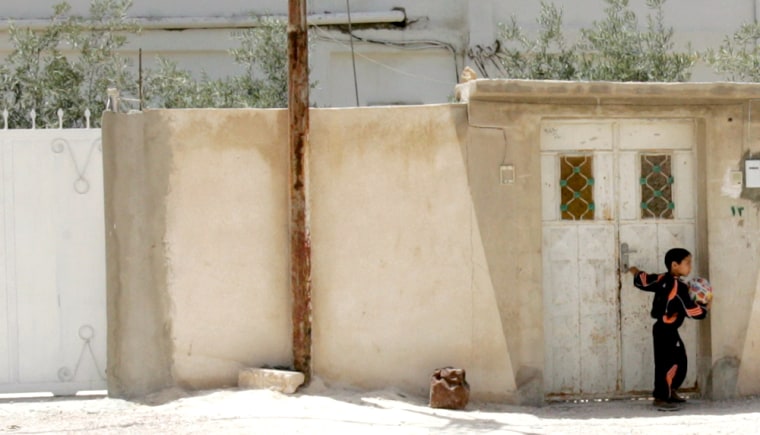In the bleak Jordanian city where Abu Musab al-Zarqawi grew up, shocked relatives mourned the al-Qaida in Iraq leader’s death as a loss to Islam and prayed for 1,000 “Zarqawis” to fight the Americans in his place.
“This is a tragedy. We are all sad here,” said al-Zarqawi’s uncle, Yazm Khalayleh, 64.
“We have to be sad because he was fighting the infidels. Anyone who says he is not sad is lying; people believe he is a martyr. We do not want to believe that he is dead.”
“God willing there will be 1,000 Zarqawis to fight the Americans,” another relative, Ahmed Khalayleh, told Reuters.
Born Ahmed Fadhil al-Khalayleh to a notable family that is part of the biggest tribe in Jordan, al-Zarqawi grew up in the dusty streets of Zarqa, an industrial city where unemployment is high and Islamic militancy widespread.
Jailed by Jordanian authorities for several years in the early 1990s, al-Zarqawi went on to fight U.S. forces in Iraq, where Osama bin Laden named him the “prince” of al-Qaida in Iraq.
Family had renounced him
Al-Zarqawi, whose real name was Ahmed Fadhil Nazzal al-Khalayleh, had been renounced by his family after his group carried out triple hotel bombings in Amman in November that killed 60 people.
In newspaper advertisements, 57 members of the al-Khalayleh family reiterated their strong allegiance to King Abdullah II, saying they had “severed links with him until doomsday.”
But relatives gathering Thursday at the house where Zarqawi was born, had praise for the man.
“He is a martyr for Islam. This is a major loss for Islam,” Zarqawi’s brother-in-law, Saleh al-Hami said. “God willing he is going to the heavens.”
Sayel al-Khalayleh, al-Zarqawi's older brother, told The Associated Press that “we anticipated that he would be killed for a very long time. ... We hope that he will join other martyrs in heaven.”
Al-Zarqawi's three sisters, all dressed in black, arrived at family home looking grief stricken.
Accompanied by a man who was the husband of one, the sisters declined to talk to reporters as they entered the house. The husband, who identified himself as Abu Qudama, said: "We're not sad that he's dead."
"To the contrary, we're happy because he's a martyr and he's now in heaven," added the man, who said he lost one of his legs fighting Russian forces in Afghanistan as part of the Islamic Mujahedeen.
In front of the family house, a 13-year-old boy, who said he was al-Zarqawi's nephew, stared at a crush of reporters who had gathered there.
"I'm so sad about my uncle," said the boy, who identified himself as Omar.
Not all on his side
There were no public signs of grieving or celebration in Zarqa, Jordan’s second largest city and located 16 miles northeast of Amman, but not everyone shared in the mood of sadness that hung over the city.
Some said Zarqawi, thought to be in his late 30s, had been killing other Muslims in Iraq, rather than fighting the American forces occupying their neighbor.
“I am happy he was killed because he used to kill Muslims just like non-Muslims. He did not distinguish,” said Sameh Dawood, a resident of Zarqa.
